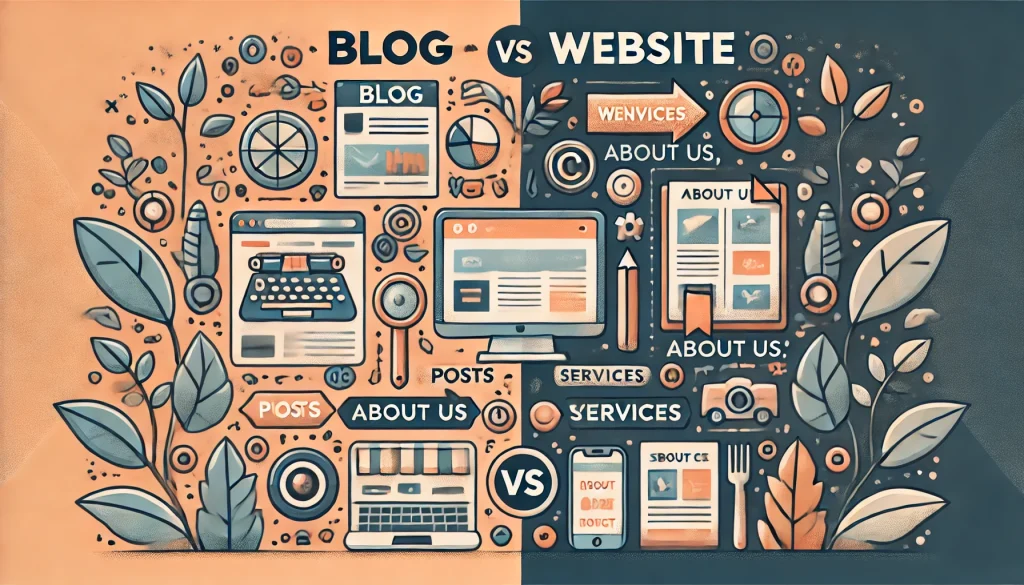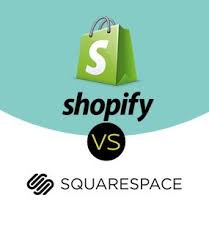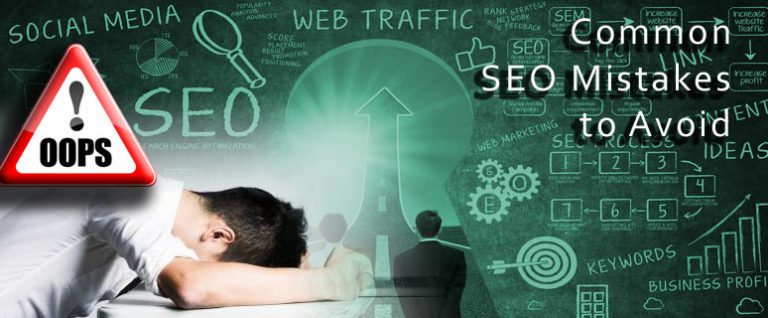Blog vs Website: Understanding the Key Differences and Benefits
In the ever-evolving digital landscape, establishing a robust online presence is crucial for businesses, individuals, and organizations alike. A critical decision that many face is choosing between a blog and a website. While these terms are often used interchangeably, they serve distinct purposes and offer unique advantages. This comprehensive guide will delve into the nuances of “Blog vs Website,” helping you determine which is best suited for your needs.

Introduction
The digital age has redefined how we communicate, share information, and conduct business. At the heart of this revolution are blogs and websites, two foundational elements of the internet. While they might seem similar on the surface, their functions, structures, and uses vary significantly. Whether you are an entrepreneur, a hobbyist, or a large corporation, understanding the differences between a blog and a website is pivotal to your online strategy.
Table of Contents
What is a Blog?
A blog is a type of website or a section of a website that focuses on written content, known as posts. Blogs are typically updated regularly with new content, often in the form of articles, essays, or journal entries. They provide a platform for individuals and organizations to share insights, opinions, news, and other information in a more informal and personal manner.
Blogs are characterized by their dynamic nature, with new content appearing frequently and often displayed in reverse chronological order. This format encourages reader engagement and fosters a sense of community through comments and social sharing.
What is a Website?
A website is a broader term that encompasses any online presence comprising multiple web pages. Websites can serve various purposes, such as providing information about a business, showcasing a portfolio, selling products, or offering services. Unlike blogs, websites are typically more static, with content that doesn’t change as frequently.
Websites are designed to offer a more comprehensive and permanent repository of information, structured in a way that makes it easy for users to find what they are looking for. This can include homepages, about pages, service or product pages, contact pages, and more.
Key Differences Between Blog vs Website
Understanding the key differences between a blog and a website is essential for making an informed decision. Here are some primary distinctions:
- Content Structure: Blogs are dynamic with frequently updated posts, whereas websites are more static with structured pages.
- Purpose: Blogs are used for sharing insights, stories, and news, while websites provide comprehensive information about a business, product, or service.
- Engagement: Blogs encourage reader interaction through comments and social sharing, while websites focus more on providing information and facilitating transactions.
- SEO Focus: Blogs often have a stronger focus on content-driven SEO, with regular updates improving search engine rankings. Websites emphasize on-page SEO and technical SEO for better performance.
When to Use a Blog
Blogs are ideal for individuals or businesses that want to:
- Share industry insights, tips, and updates.
- Establish thought leadership in a particular niche.
- Engage with an audience through comments and social sharing.
- Improve SEO with regular, fresh content.
- Generate leads through informative and engaging posts.
When to Use a Website
Websites are best suited for those who need to:
- Provide detailed information about a business, product, or service.
- Create an online storefront for e-commerce.
- Offer a comprehensive portfolio or showcase projects.
- Facilitate user actions like booking appointments or making purchases.
- Maintain a professional online presence with structured information.
Benefits of Blogging
Blogging offers several advantages, including:
- Enhanced SEO: Regular blog posts with relevant keywords can improve your site’s visibility on search engines.
- Audience Engagement: Blogs provide a platform for interacting with your audience through comments and social media.
- Brand Authority: Sharing expert insights helps establish you as a thought leader in your industry.
- Lead Generation: Blogs can attract potential customers through valuable content and lead magnets.
- Personal Connection: Blogs allow for a more personal connection with readers, building trust and loyalty.
Advantages of Having a Website
Websites provide numerous benefits, such as:
- Professionalism: A well-designed website conveys credibility and professionalism.
- Comprehensive Information: Websites offer a centralized location for all relevant information about your business or service.
- E-commerce Capabilities: Websites can be equipped with online stores, enabling product sales and transactions.
- Flexibility: Websites can be customized to fit various business needs, from portfolios to booking systems.
- Brand Presence: A website establishes a permanent online presence for your brand, accessible anytime.
SEO Considerations for Blogs
Effective SEO is crucial for blog success. Key strategies include:
- Keyword Research: Identify and use relevant keywords in your blog posts to attract organic traffic.
- Quality Content: Focus on creating high-quality, valuable content that addresses your audience’s needs.
- Regular Updates: Maintain a consistent posting schedule to keep your blog fresh and engaging.
- Internal Linking: Use internal links to guide readers to related posts and improve site navigation.
- Backlinks: Encourage other websites to link to your blog, boosting your site’s authority and rankings.
SEO Strategies for Websites
For websites, SEO involves:
- On-Page Optimization: Ensure all pages are optimized for relevant keywords and have meta descriptions, titles, and headers.
- Technical SEO: Improve site speed, mobile-friendliness, and overall user experience.
- Content Strategy: Develop a content strategy that includes static pages and, if possible, a blog section.
- Local SEO: For businesses with a physical presence, optimize for local search queries and include your location.
- Link Building: Build high-quality backlinks to enhance your site’s authority and search engine rankings.
Monetization Opportunities with Blogs
Blogs offer various monetization opportunities, such as:
- Advertising: Display ads on your blog through platforms like Google AdSense.
- Affiliate Marketing: Promote products and earn commissions through affiliate links.
- Sponsored Posts: Partner with brands to create sponsored content.
- Digital Products: Sell e-books, courses, or other digital products directly from your blog.
- Membership Sites: Offer exclusive content or services through a paid membership model.
Revenue Streams for Websites
Websites can generate revenue through:
- E-commerce Sales: Sell physical or digital products directly from your site.
- Service Bookings: Offer booking and appointment systems for services.
- Advertisements: Display ads on high-traffic pages.
- Subscription Models: Provide premium content or services through subscriptions.
- Lead Generation: Use your website to generate and sell leads to other businesses.
Content Management Systems (CMS) for Blogs
Choosing the right CMS is vital for managing your blog efficiently. Popular options include:
- WordPress: The most popular CMS for blogging, offering flexibility and a vast array of plugins.
- Blogger: A user-friendly platform ideal for beginners.
- Medium: A minimalist platform focused on content creation and reader engagement.
- Ghost: A modern CMS designed for professional publishing.
CMS Options for Websites
For websites, consider these CMS options:
- WordPress: Highly customizable with a wide range of themes and plugins.
- Wix: An easy-to-use website builder with drag-and-drop functionality.
- Squarespace: Known for its design-centric templates and ease of use.
- Joomla: Offers more flexibility and advanced features for experienced users.
- Drupal: Highly scalable and suitable for complex, large-scale websites.
Design and Customization in Blogs
Blog design and customization are essential for creating an engaging reader experience. Consider:
- Themes: Choose a theme that reflects your brand and is easy to navigate.
- Widgets: Use widgets to add functionality like recent posts, popular posts, and social media feeds.
- Plugins: Enhance your blog with plugins for SEO, social sharing, and performance.
- Responsive Design: Ensure your blog is mobile-friendly for users on all devices.
- Visual Elements: Use images, videos, and infographics to make your content more engaging.
Design Flexibility in Websites
Websites offer extensive design flexibility, including:
- Custom Themes: Develop a custom theme that aligns with your brand identity.
- Interactive Elements: Incorporate interactive features like forms, sliders, and galleries.
- Navigation: Design intuitive navigation menus to improve user experience.
- Branding: Consistently use your brand’s colors, fonts, and imagery across all pages.
- User Experience (UX): Focus on UX design to ensure your site is easy to use and navigate.
User Engagement in Blogs
Blogs thrive on user engagement. Strategies to enhance interaction include:
- Comments: Encourage readers to leave comments and engage in discussions.
- Social Sharing: Make it easy for readers to share your posts on social media.
- Email Newsletters: Build an email list and send regular updates to your subscribers.
- Calls to Action: Use calls to action (CTAs) to guide readers towards desired actions.
- Interactive Content: Incorporate quizzes, polls, and surveys to engage your audience.
Enhancing User Interaction on Websites
Websites can boost user interaction through:
- Live Chat: Offer live chat support for instant user assistance.
- Feedback Forms: Collect user feedback to improve your site and services.
- Interactive Tools: Use tools like calculators, configurators, or planners to add value.
- Personalization: Implement personalized content based on user behavior and preferences.
- Community Features: Create forums or community sections for user interaction and support.
Integrating Blogs into Websites
Many businesses integrate blogs into their websites to leverage the benefits of both. This approach can:
- Improve SEO: Regular blog updates boost your site’s overall SEO performance.
- Enhance Content Marketing: Use your blog to support your content marketing strategy.
- Increase Engagement: Blogs can attract and engage visitors who might later explore other parts of your website.
- Establish Authority: A blog can showcase your expertise and reinforce your brand’s authority.
- Drive Traffic: Well-crafted blog posts can drive traffic to your website and other important pages.
Examples of Successful Blogs
Several blogs have achieved significant success by focusing on niche content and audience engagement. Examples include:
- Moz Blog: A leading blog in the SEO industry, offering valuable insights and tips.
- Copyblogger: Focuses on content marketing and copywriting, providing practical advice for marketers.
- TechCrunch: Covers the latest technology news and trends, attracting a vast readership.
- Mashable: Known for its blend of tech, entertainment, and lifestyle content, Mashable engages a diverse audience.
Case Studies of Effective Websites
Effective websites often combine strong design, functionality, and user experience. Notable examples include:
- Apple: A clean, intuitive design that highlights their products and enhances the user experience.
- Amazon: Comprehensive e-commerce functionality with personalized recommendations and efficient navigation.
- Airbnb: An interactive platform that facilitates seamless booking and user interaction.
- Nike: A visually appealing site that integrates e-commerce with inspirational content and branding.
Blog vs Websites for E-commerce
For e-commerce, both blogs and websites play crucial roles:
- Blogs: Can drive organic traffic, educate potential customers, and build trust through content.
- Websites: Provide the platform for transactions, product showcases, and customer service.
Combining both can create a powerful e-commerce strategy that leverages content to attract and convert customers.
Blog vs Website for Personal Branding
Personal branding benefits significantly from both blogs and websites:
- Blogs: Offer a platform to share personal insights, and expertise, and build a loyal audience.
- Websites: Establish a professional online presence and showcase a portfolio, achievements, and services.
Integrating a blog into a personal website can enhance credibility and engagement.
Corporate Blogs vs Corporate Websites
Corporate blogs and websites serve different purposes within a business context:
- Corporate Blogs: Focus on industry insights, company news, and thought leadership. They foster engagement and SEO benefits.
- Corporate Websites: Provide comprehensive information about the company, its products, services, and contact details. They serve as the primary business platform.
Using both strategically can strengthen a company’s online presence and customer relationships.
Future Trends in Blogging
Blogging continues to evolve, with emerging trends including:
- Video Content: Increasing use of video posts to engage audiences.
- AI and Automation: Using AI tools to enhance content creation and personalization.
- Microblogging: Shorter, more frequent posts catering to busy readers.
- Interactive Content: Incorporating interactive elements like quizzes and polls to boost engagement.
- Voice Search Optimization: Adapting content for voice search queries.
Emerging Trends in Website Development
Website development is also witnessing new trends, such as:
- Progressive Web Apps (PWAs): Offering app-like experiences on websites.
- AI and Chatbots: Enhancing user interaction and support with AI-driven features.
- Motion UI: Using animations and transitions to improve user experience.
- Voice User Interface (VUI): Integrating voice search and commands.
- Cybersecurity: Increasing focus on data protection and security measures.
FAQs
What is the main difference between a blog vs website?
The main difference lies in content structure and purpose. Blogs are dynamic, frequently updated, and focus on engagement, while websites are more static, offering comprehensive information and facilitating transactions.
Can a website have a blog?
Yes, many websites incorporate blogs to leverage SEO benefits, engage visitors, and enhance content marketing strategies.
Which is better for SEO: blog vs website?
Both can be effective for SEO, but blogs often have an edge due to regular updates and keyword-rich content. Websites can achieve strong SEO with well-optimized pages and technical SEO practices.
How do blogs generate revenue?
Blogs can generate revenue through advertising, affiliate marketing, sponsored posts, selling digital products, and membership sites.
Is it necessary to update a blog regularly?
Yes, regular updates are crucial for maintaining reader interest, improving SEO, and staying relevant in your niche.
Can a blog be part of an e-commerce strategy?
Absolutely. Blogs can drive traffic, educate potential customers, and build trust, all of which can support and enhance an e-commerce strategy.
Conclusion
In the digital era, choosing between a blog and a website—or integrating both—depends on your goals and needs. Blogs excel in engagement, SEO, and personal connection, while websites offer a structured, professional presence with various functionalities. Understanding the distinctions and advantages of each will empower you to make informed decisions and harness the full potential of your online presence.






